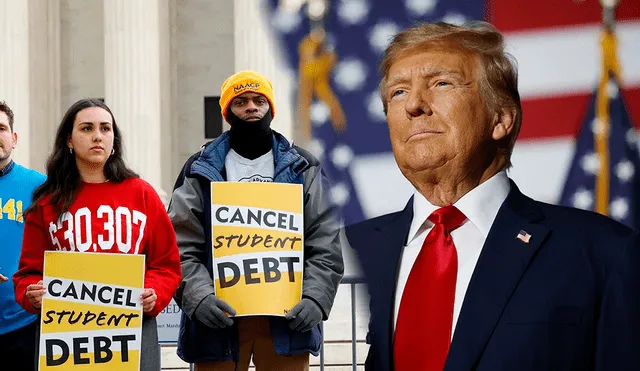Trump orders suspension of Federal Grant and Loan Programs across the US
President Trump’s executive order halts federal grants and loans across key sectors, targeting progressive initiatives. The move has sparked legal challenges and warnings of widespread disruptions.

President Donald Trump signed an executive order mandating the immediate suspension of federal grants and loans across key sectors such as education, health, and energy. This measure, effective as of 5:00 p.m. Eastern Time, aims to redirect federal expenditures in alignment with recent executive actions targeting progressive policies, including diversity initiatives and environmental programs.
The decision has sparked widespread controversy, with supporters praising the move as a measure to curb unnecessary spending and critics warning of disruptions to critical services and programs. Here’s a detailed look at the scope and implications of this suspension.
The scope of Trump’s suspension of Federal Funds
The executive order issued by Trump halts federal grants and loans tied to several initiatives, including foreign aid, non-governmental organizations, diversity, equity, and inclusion (DEI) programs, gender-related policies, and environmental projects connected to the Green New Deal.
- Programs like Medicare and Social Security remain unaffected by the suspension.
- Essential services, including university research, cancer studies, and food assistance programs, are among those potentially impacted, creating uncertainty about their continuity.
In a memorandum accompanying the order, Matthew Vaeth, acting director of the Office of Management and Budget (OMB), outlined the administration's rationale. Vaeth stated that "federal resources should not be allocated to advance policies of social engineering related to Marxist equity, transgender ideology, and the Green New Deal." This aligns with the administration’s broader strategy to dismantle progressive initiatives deemed inconsistent with the interests of taxpayers.
The decision has drawn strong criticism from Democratic leaders and progressive organizations, who argue that halting federal grants and loans could have dire consequences for vulnerable populations.
- University research projects, including those addressing public health challenges like cancer and mental health, may face delays or cancellations.
- Food assistance programs and suicide prevention hotlines are also at risk of funding shortages, raising concerns about the welfare of affected communities.
Democratic lawmakers have labeled the move as "unprecedented" and have called on the administration to reverse the decision. Critics argue that it undermines the core functions of federal assistance programs that millions of Americans rely on.
Legal challenges and constitutional questions
The suspension of federal grants and loans also raises constitutional questions regarding presidential authority. Legal experts have pointed to the Impoundment Control Act of 1974, which limits the executive branch’s ability to withhold allocated federal funds without congressional approval.
- The administration’s decision could face legal challenges, with opponents likely to argue that the move exceeds the president’s authority and violates the separation of powers.
- The debate over the legality of the suspension is expected to intensify as affected organizations and states explore avenues for judicial intervention.
